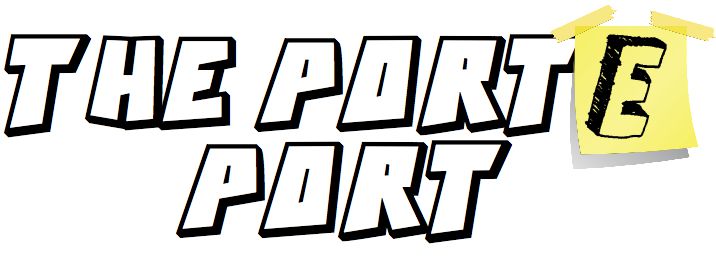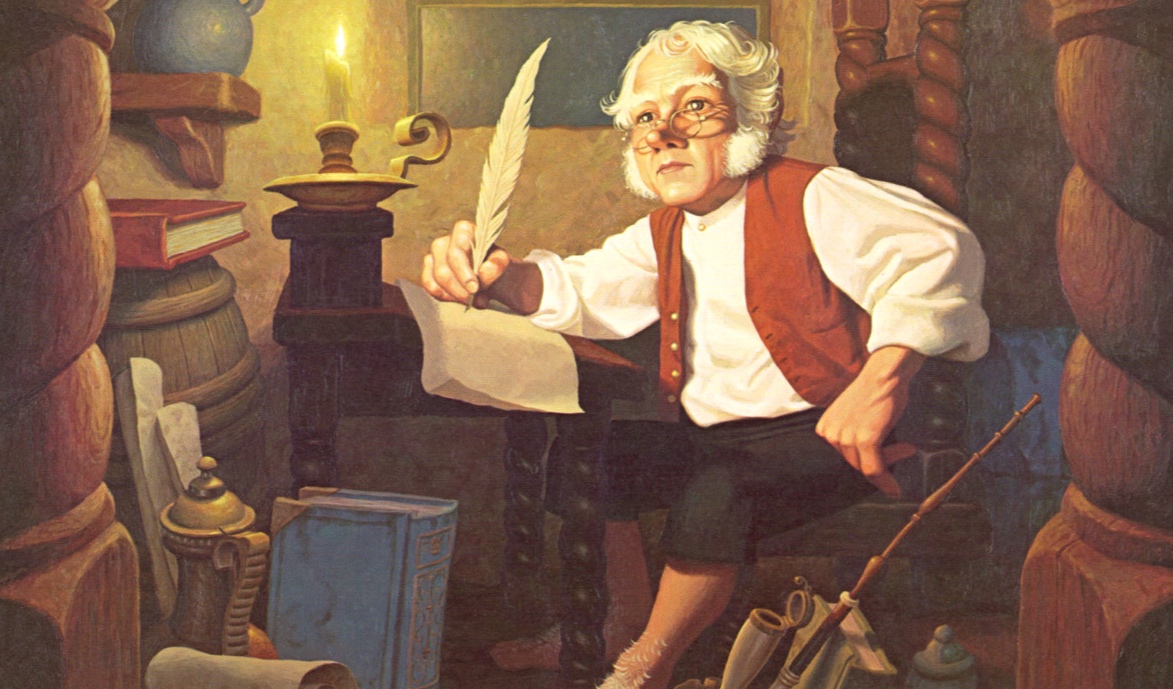Write Like A Geek (And Fight Imposter Syndrome)
Art by The Hildebrandt Brothers
Imposter Syndrome.
It's just two words. Two words that every writer deals with at some point or another.
In fact, I would argue that the more you write, the more Imposter Syndrome sets in.
You start to write out an idea that suddenly feels all too similar to something you love. Your post about how to write something, or overcome something, or how to finally use commas the right way, starts to flow from your fingertips.
Then you feel it.
The doubt nags at the back of your mind. You aren't a real writer, you tell yourself. Look at the actual pros...you aren't like them.
Amateur. Aspiring. Wanna-be.
There are a million articles out there to help you deal with that sinking feeling. Yet, the depression only sinks deeper.
I've gone months without writing much more than my signature on the receipt for my barrel-aged stout because of the fear Imposter Syndrome creates. (The stout helps.)
Plan B for fighting Imposter Syndrome (Southern Grist Brewery)
How Our Favorite Creators Beat Imposter Syndrome
I have an idea of what to do with all that Imposter Syndrome.
Once upon a time, the stories we love that inspired us to become writers in the first place didn't exist. The creators were nobodies that went through their weeks daydreaming of the kind of books, movies, games, and shows they wanted to bring into this world.
Yet, here we are wishing we could create stories like they did. To command such worldbuilding power like J.R.R. Tolkien. Or to hope in the future like Gene Roddenberry. What about the imaginative scope of George Lucas?
There was a time when all those creators had was their hopes and dreams, inspired by what came before.
In short: they were geeks.
Tolkien couldn't get enough of medieval literature. The dude is still the source of our best analysis of Beowulf. Roddenberry looked to the stars and wondered what was out there and what humanity needed to become to reach them. And Lucas...oh man.
The Searchers
Flash Gordon
The Hidden Fortress
These seem to have little to do with each other. All have one common connecting point: George Lucas.
These stories influenced ol' George, and he couldn't stop the raging fires of inspiration in his mind.
You can look at the opening scroll of Star Wars and think Lucas just copy/pasted from Flash Gordon. The trio of Han, Luke, and Leia can be seen as derivative of The Hidden Fortress. Desert planets and sweeping cinematography? Pfft...isn't that a little too Searchers there, George?
No matter how many suns there are, looking into the horizon is always epic
Yet, Star Wars is a thing our great-grandkids will still be watching in theaters. Or the holodeck, or whatever they will have by then.
So much for Imposter Syndrome.
Lucas took what he loved most and made a movie. Simple as that. He had ideas of his own, characters created from his own inspired imagination, and a plot that explored the Hero's Journey. And we eat it up.
Lucas learned from what he loved. He wrote like a geek.
Apply This Geeky Strategy To Your Writing
What influences you?
Don't shy away from having a story inspired by your love of Blade Runner. Keep finding your voice as you emulate the wonder of The Legend of Zelda. Throw in a nod to Darkwing Duck somehow.
It's you. That's what makes it different.
Cut through the Imposter Syndrome by crashing into it. Don't overthink how original you have to be, you know what you like, so write that. As C.S. Lewis once said:
“Even in literature and art, no man who bothers about originality will ever be original: whereas if you simply try to tell the truth (without caring twopence how often it has been told before) you will, nine times out of ten, become original without ever having noticed it.”
Now, I'm not saying rip off these things and make terrible fan fiction, then pass it off as something original. (Looking at you Starcrash. And you...*nervously looks around, then whispers*...Eragon).
Our favorite stories, though, have a lot to teach us on how to create immersive worlds.
Becoming Better Writers Because We’re Geeks
So, I'm taking my own advice.
When you fight Imposter Syndrome as you write about Imposter Syndrome
This blog is going to lean into the geeky storytelling that I love. I've already started it with Tolkien Tuesdays, and I'm going to expand to explore more and more with the movies, books, shows, and games we all love.
It's something I've been dancing around for a while. Much of my older articles explore story and geekiness, and I just didn't know what to call it or how to gather it all up. Well, here we go.
My goal is to grow as a writer. Hence the whole, staying consistent with my writing thing. I get inspired by stuff, if you haven't already noticed. So I'm going to examine those things, then over-examine them.
I'll pass those light bulb moments to you.
The more fantastic the storytelling elements discovered in these geeky stories, the better you get at writing. It's about downloading these tips faster than Keanu Reeves can download Kung Fu.
On this blog, of course, you will find more articles exploring story (with plenty more every week), but I have something new to share too.
If you sign up for the newsletter for this site, you will get tips directly to you. There will be new advice in there, links to the articles that help the most, and even geekier ruminations.
Think of it like an e-course that you have already been taking since the first time you cried watching Theoden say, "I know your face."
Only after reading through my analysis, you will know why it was such an emotional moment. Then those tools will be yours to use.
So, join me in the adventure by clicking the sign-up button below, and soon you will be writing like a geek too.
PS: Don't worry, you won't be getting emails every day. The writing advice is in-depth, geeky, and full of different points on characterization, worldbuilding, and plotting. But you don't want an overflowing inbox.












